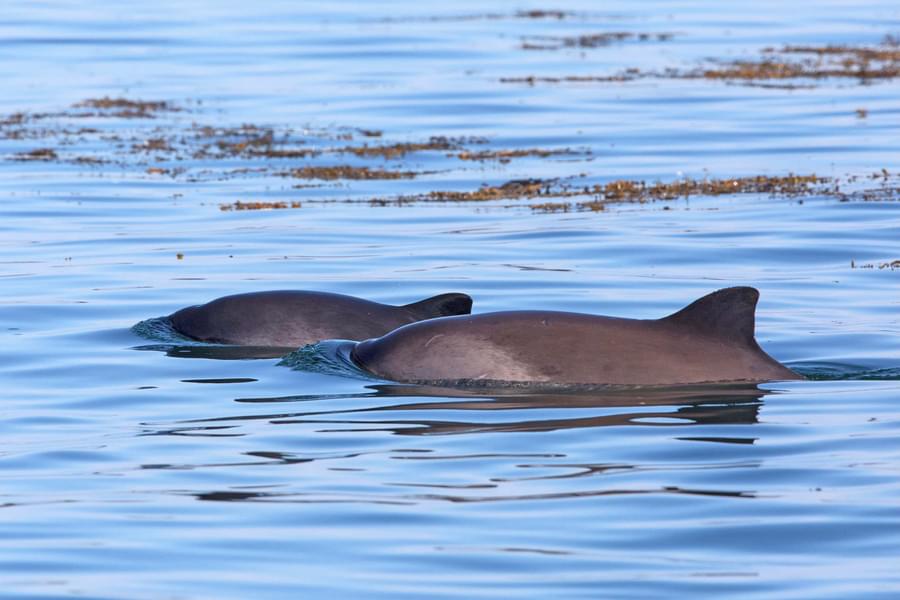Hello! I’m Silvia, an ORCA Ocean Conservationist, working on the DFDS ferry between Dieppe and Newhaven. My job is all about sharing the wonders of the English Channel's cetaceans with passengers. I give presentations on the incredible cetacean species that live here, explaining their behaviours, how to spot them, and the threats they face. I also lead wildlife watches with passengers to observe these magnificent animals and help others see them as well. Today, we'll talk about the most common cetacean I’ve seen so far: the harbour porpoise.
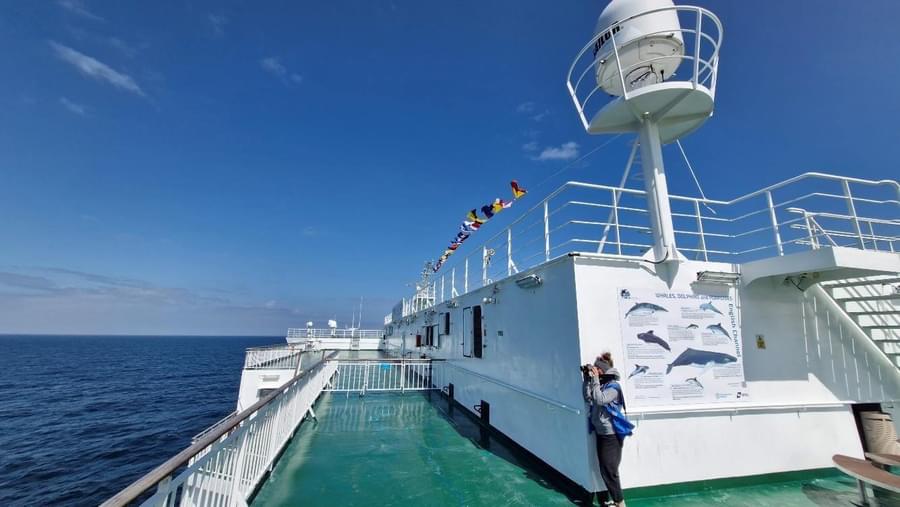
Who are these cuties?
Harbour porpoises (Phocoena phocoena) are the smallest and shyest members of the whale family. They’re like the introverts of the ocean, measuring about 1.5 metres long and weighing around 55 kg. These charming creatures are found in cool, shallow coastal waters and are known for their elusive nature. They are the second smallest cetaceans in the world, just after the vaquita, which is a critically endangered species native to the northern part of the Gulf of California.
Despite their diminutive size, harbour porpoises are highly skilled swimmers capable of reaching speeds of up to 22 miles per hour (approximately 35.4 kilometres per hour). They are often found foraging for small fish, such as herring and sprat, in shallow coastal waters.
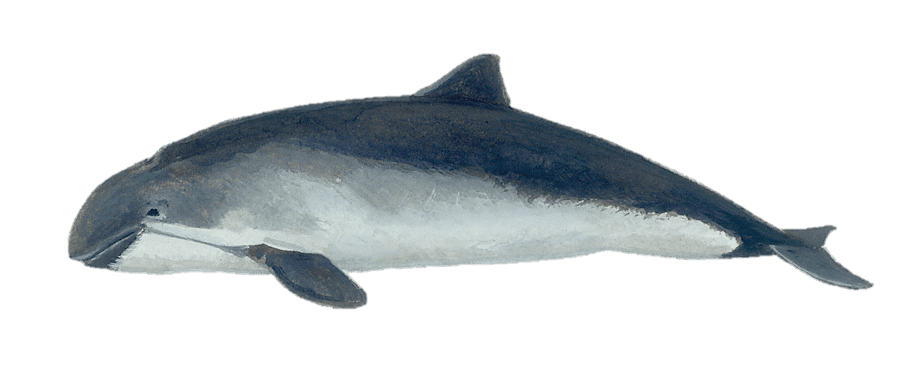
Interesting facts about harbour porpoise! 🐬
Did you know that harbour porpoises have a nickname? They're often called the “puffing pig” after the sound they make when coming up to breathe. It’s quite a fitting name for these creatures.
Harbour porpoises have a sneaky habit of surfacing just when you’re about to snap a photo! They often appear suddenly and briefly at the surface, making capturing them on camera challenging.
Unlike their more sociable dolphin cousins, harbour porpoises are relatively quiet. However, they do use clicks and whistles to communicate with each other and navigate their environment. These sounds are part of their echolocation system, which is like their own built-in sonar. Here's how it works: the porpoise emits a series of high-frequency clicks that travel through the water. When these clicks hit an object, like a fish or an obstacle, they bounce back as echoes. By listening to these echoes, the porpoise can determine the size, shape, distance, and even the texture of the object. This sophisticated method allows them to hunt efficiently, avoid predators, and navigate through murky waters where visibility is low. It’s an incredible adaptation that showcases the harbour porpoise's remarkable intelligence and sensory capabilities.
Another fascinating fact: It takes a newborn harbour porpoise less than 30 hours to develop full hearing – faster than any other mammal, whether on land or at sea. This rapid development is crucial for their survival, as it enables them to quickly start using echolocation to navigate and find food.
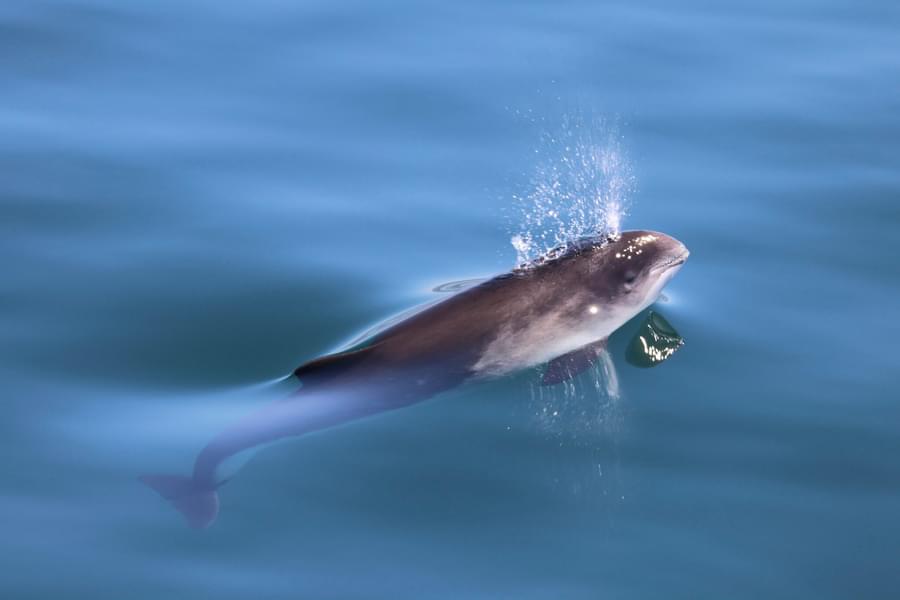
Spotting the Porpoise
If you want to spot a harbour porpoise, keep an eye out for a small, triangular dorsal fin slicing through the water. They usually travel in small groups, known as pods, consisting of three to five individuals. Their shy and reclusive nature means they often avoid boats, making sightings a delightful challenge. Harbour porpoises are the most common cetaceans in UK waters and are frequently seen from the UK coast.
Threats They Face
In the bustling waters of the English Channel, harbour porpoises face numerous threats. Bycatch in fishing nets is a significant danger, often leading to injury or death. Boat traffic and marine pollution, especially plastic waste and chemical contaminants, also pose severe risks. Noise pollution from ships can disrupt their communication and navigation, making it harder for them to find food and avoid predators.
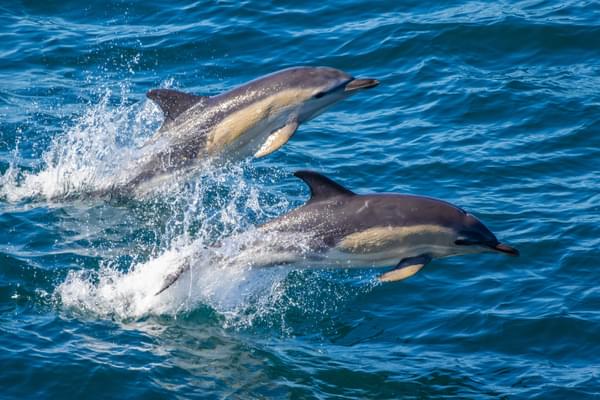
The best way to really appreciate how amazing whales and dolphins are is to see them in the wild where they belong - and you can do that from right on your doorstep by joining one of our Sea Safaris! Visit www.orca.org.uk/watch to check out all the upcoming dates and take your first step on your very own whale and dolphin adventure!

